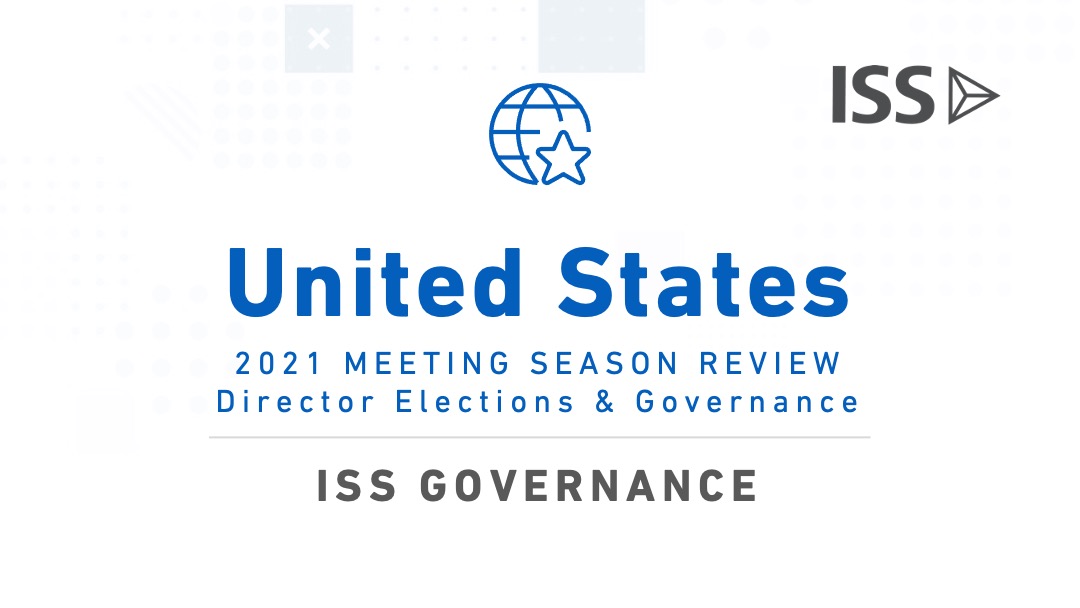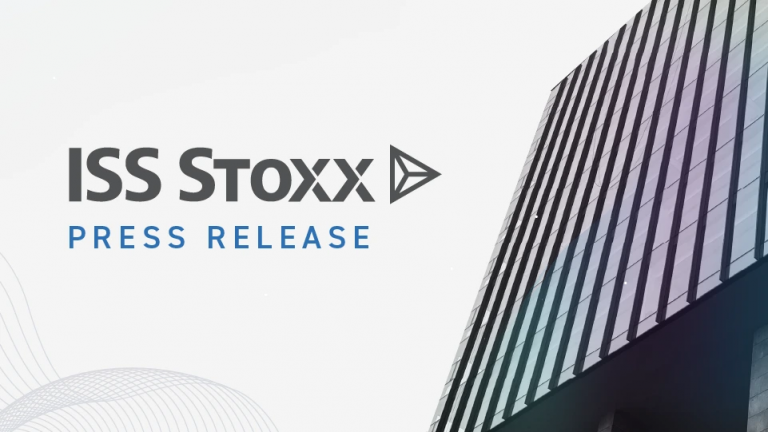Below are key takeaways from ISS’ recently released United States – Director Elections & Governance 2021 Proxy Season Review. The full report is available to institutional subscribers by logging into ProxyExchange then selecting the Governance Exchange and its Report Center tab and to corporate subscribers by logging into Governance Analytics then selecting the Governance Exchange and the Report Center tab.
KEY TAKEAWAYS
- Virtual-only shareholder meetings remained the norm. Although the roll out of vaccines has resulted in a slow return to close to normal across the country, proxy season remained a mostly virtual affair.
- More directors feel the brunt of investor dissent: The proportion of Russell 3000 Index directors who received less than 80 percent support reached a multi-year high. A broad Vote No campaign targeted board leadership at 15 companies over concerns regarding board oversight of climate change, while a dissident shareholder won three board seats in a proxy fight at Exxon Mobil after raising similar risk oversight and performance concerns.
- Lack of racial & ethnic diversity on boards becomes a factor in directors receiving less-than-majority support: On the heels of investors advocating for greater board gender diversity, boards without racial or ethnic diversity appear next to face scrutiny.
- Written consent-related shareholder proposals continue to dominate: Proponents focused their efforts on shareholder proposals regarding written consent rights, presenting 70 proposals on ballot in the first half of 2021, the most in the past 10 years.
- Special Purpose Acqusition Corporations (SPACs) rise in popularity, but saddle investors with poor governance structures: Continuing their torrid pace from late 2020, SPACs remain a popular avenue for private companies to go public. However, some SPACs face challenges to receive shareholder approval for the charter documents which often include numerous provisions which fall short of good governance practices.
If you are not a subscriber, please contact sales@issgovernance.com (for institutional investors) or contactus@isscorporatesolutions.com (for corporations) to learn more about accessing bespoke governance research.
By Robert Kalb, Andrew Shaneyfelt




